Staying Fit

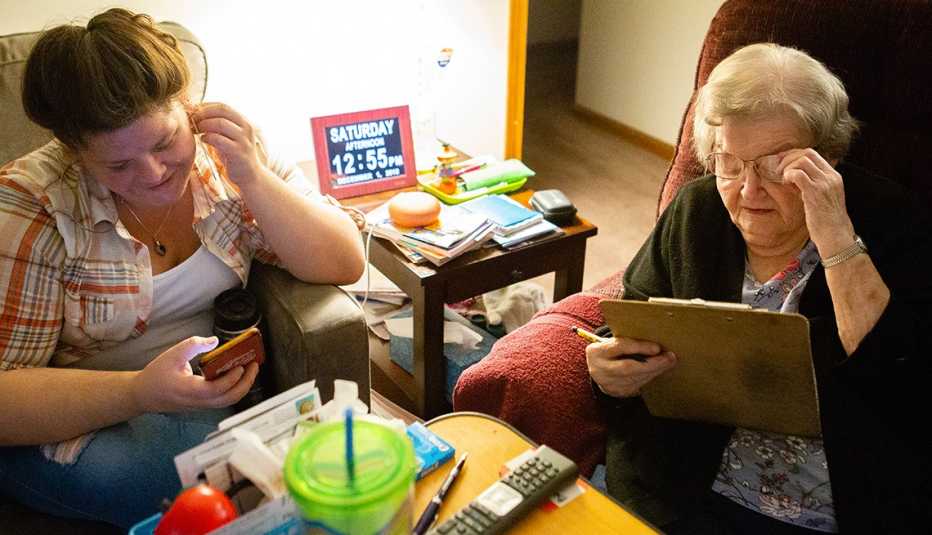
Rachel Hiles, 32, of Kansas City, Mo., runs her own media and design business and is a caregiver for her grandmother Barbara, 82, who lives in her own house, 15 minutes away. Rachel started caring for Barbara after she fell and fractured a vertebra and had a colostomy for diverticulitis in 2015.
The Biggest Challenge
“The hardest thing for me is when you realize your loved one’s trajectory is going down and there’s nothing you can do to stop it or bring it back up. Sometimes I have anticipatory grief — I start to think about what’s going to happen when I lose Grandma. Right now, all I can do is know that I’m doing the best I can and try to make every moment as joyful as I can. That way, I’ll have a huge reserve of happy memories to draw from when she’s no longer with me.”

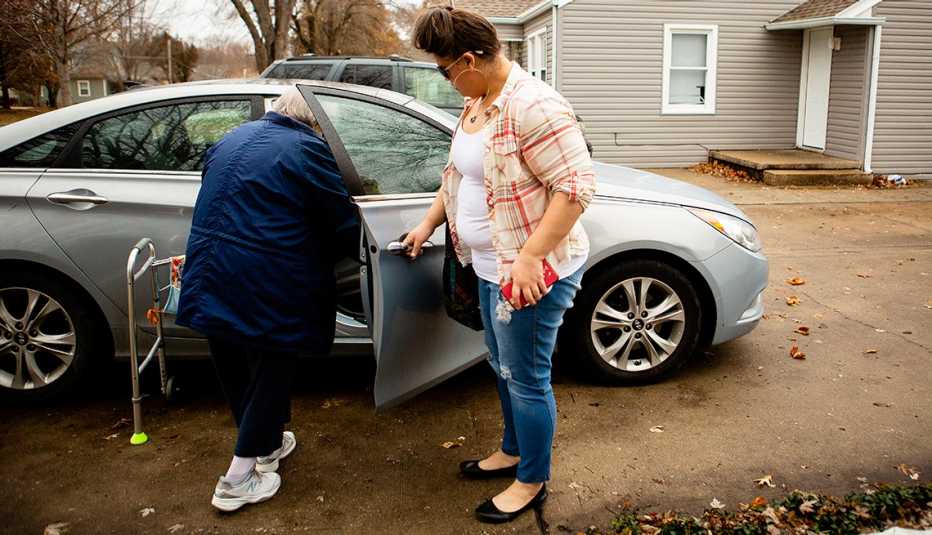
After Grandma fell, I got a crash course in caregiving. It’s important to her to stay in her own home so I’m committed to doing whatever I can to help her age in place. At this point, she can be alone at night — I’ve set up cameras in almost every room and at the front door so I can keep an eye on her when I’m not there. But during the day, she needs help. She relies on a walker to get around her home and she has memory problems related to dementia.


AARP Membership— $12 for your first year when you sign up for Automatic Renewal
Get instant access to members-only products and hundreds of discounts, a free second membership, and a subscription to AARP the Magazine.

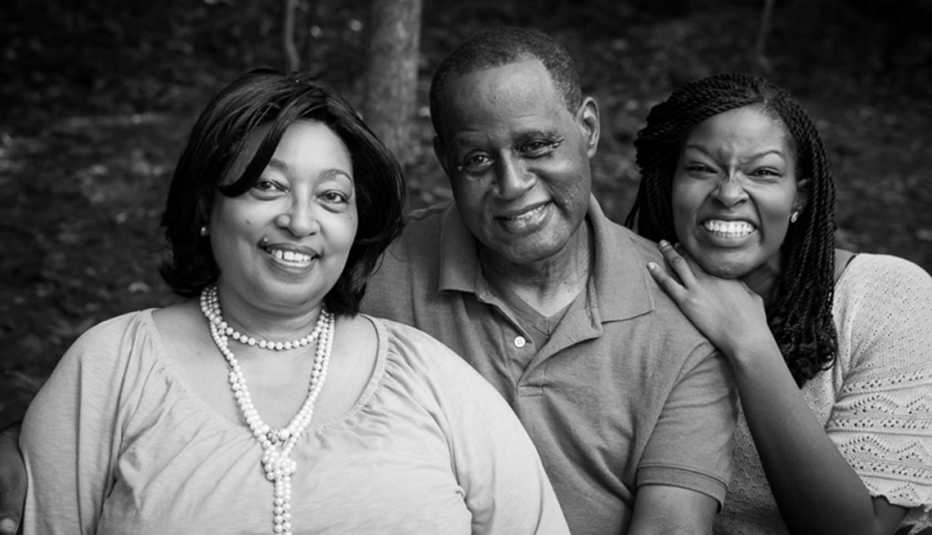
I work full-time so during the week, I’ll let my dogs out after work then drive to my grandmother’s house to spend most evenings with her. I also spend Wednesdays and huge chunks of time on the weekends with her. Recently, I hired some help so I can take a couple of weekdays off from caring for Grandma — I get a lot of work done on those days. I also organize her doctor’s appointments, pay her bills, and make sure she has spending money and money to pay the helpers. Basically, running my grandma’s care is like running a business — there’s a mission, a vision, certain values and a customer, who is my grandma. There’s a lot to manage. I have to train and supervise the helpers, pay them, and coordinate their schedules.

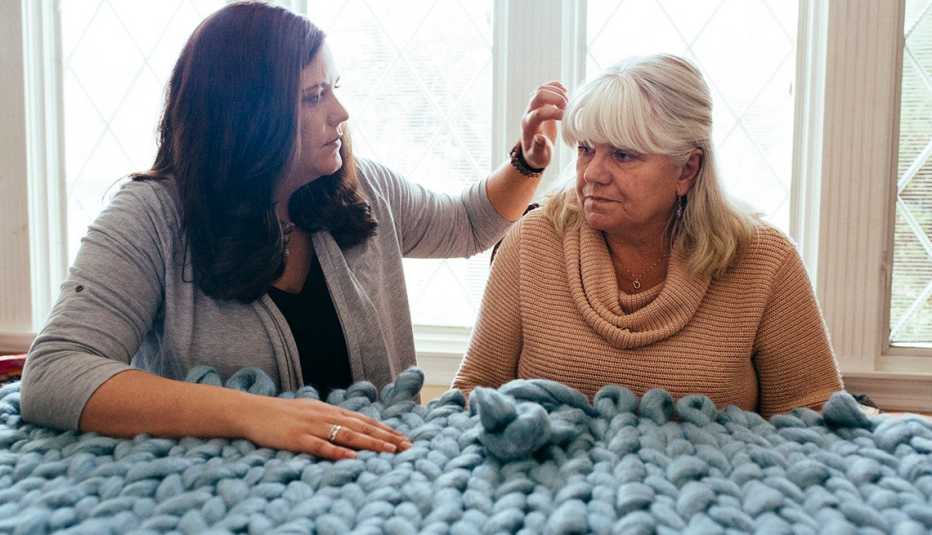
When I am with Grandma, I’ll help her bathe, get dressed and change her colostomy bag. Once a week, I take care of the laundry, set up her medications and make sure she has all the medicines she needs. I do the shopping and I prepare her meals; I make sure she has enough food to eat to keep everything moving smoothly with her colostomy bag. When the weather is nice, we like to go down to the marina, feed the fish and enjoy being outside. Other times, we’ll look at old photos or read short stories together.

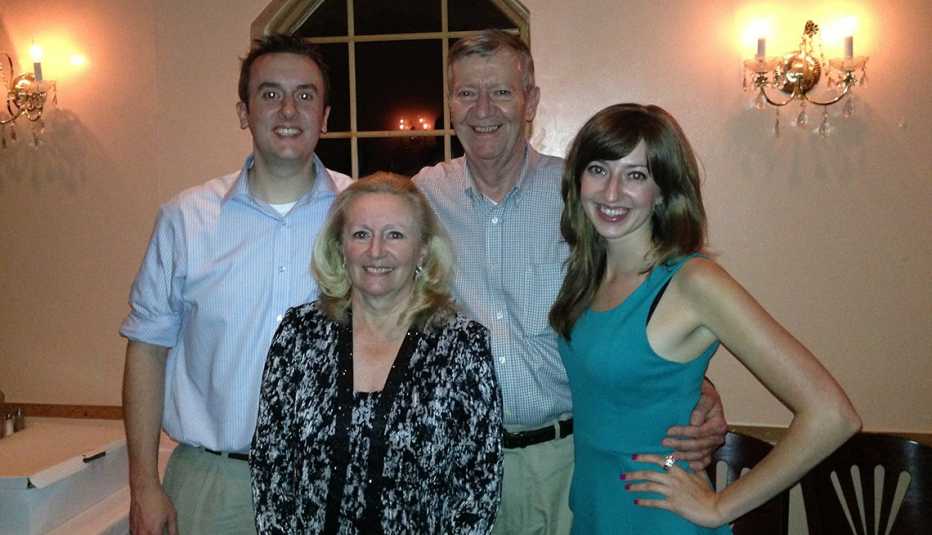
AARP Care Guide: Help caring for a loved one at home

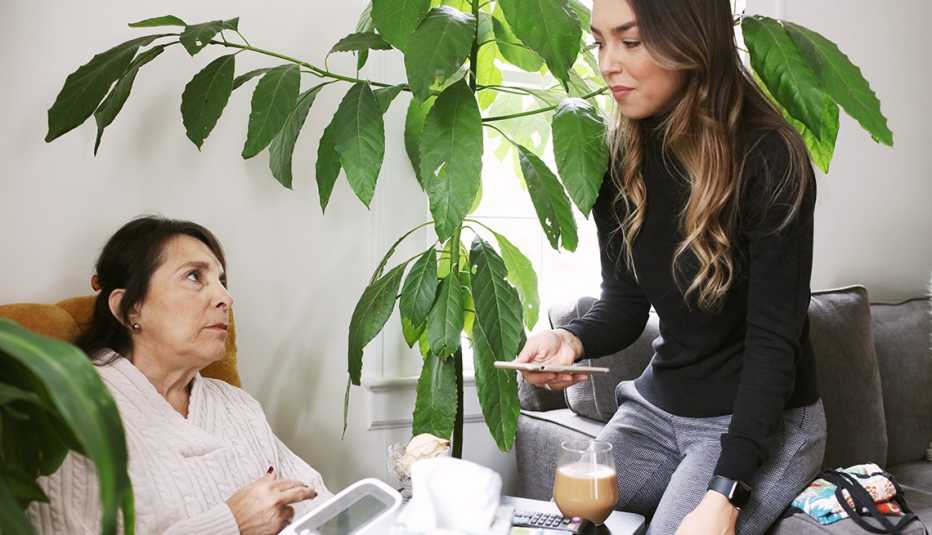

































































More From AARP